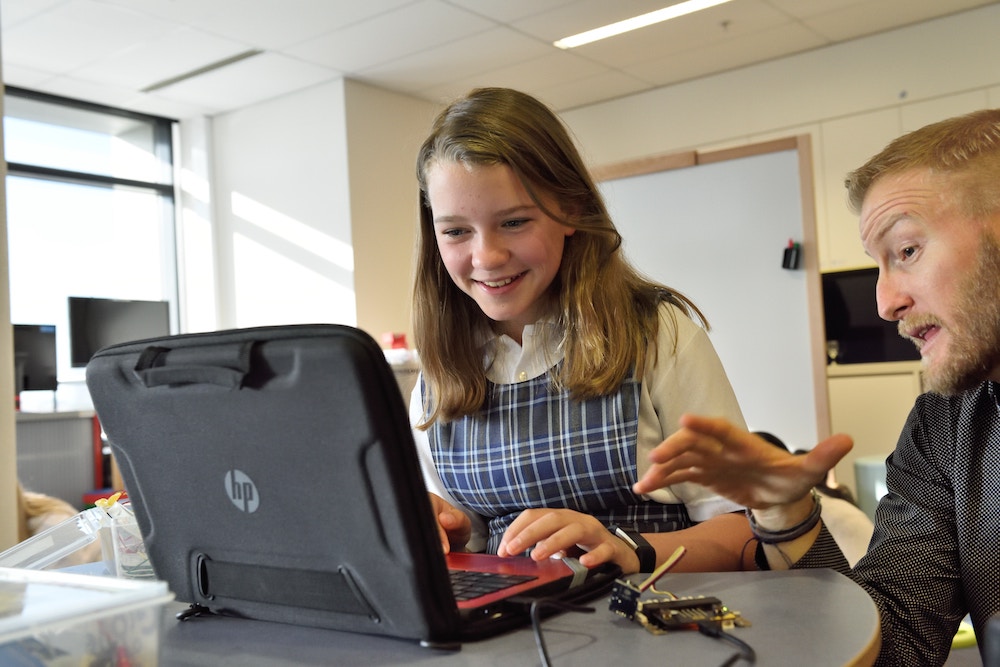Computer science jobs pay well yet access to, enrollment and success in computer science courses in California schools varies by gender, race/ethnicity, income and geography, a new report said.
“Computer Science in California Schools: An Analysis of Access, Enrollment and Equity” was released Monday by the Computer Science for California coalition, the Sacramento County Office of Education and Oakland’s Kapor Center, which advocates for diversity.
According to the U.S. Bureau of Labor Statistics, the median pay in 2018 for jobs in computer and information technology ranged from $53,470 for computer support specialists to $118,370 for computer and information research scientists. Median pay for U.S. workers was $38,640 in May 2018. But in 2017, just 3 percent of California’s 1.9 million high school students took a computer science class, according to the new report. Almost two-thirds of the state’s schools offer no computer science courses at all, the report said.
Computer science jobs are expected to grow by 13 percent between 2016 and 2026, faster than the average for all occupations. More than a half million computer science jobs are expected to be created during that period. “Every student regardless of their zip code, race, gender or economic background, deserves access to quality computer science education,” Allison Scott, chief research officer for the Kapor Center, said in a statement. Scott was an author on the report.
Scott said, “We believe that a commitment to equitable computer science education can close opportunity gaps-particularly for black, Latinx and Native American students, girls of all backgrounds, and students from low-income households.”
The report shows that low-income students, girls and students of color are less likely to learn computer science in school. Just 29 percent of students taking introductory computer science courses were girls, while girls comprise 50 percent of the California school population. Schools in low-income areas are four times less likely to offer Advanced Placement computer science courses and black students comprise just 1 percent of students taking the AP Computer Science A exam.
“This report clearly highlights the need for us to double-down on our commitment to equity,” Julie Flapan, executive director of the Alliance for California Computing Education for Schools and Students, said in a statement. Flapan’s group advocates for equal access to good computer science education.
The report was released as hundreds of educators meet this week in Sacramento to learn more about teaching computer science.
